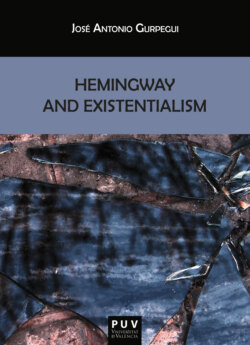Hemingway and Existentialism

Реклама. ООО «ЛитРес», ИНН: 7719571260.
Оглавление
José Antonio Gurpegui Palacios. Hemingway and Existentialism
Отрывок из книги
AND EXISTENTIALISM
Carme Manuel
.....
Hemingway’s relationship with existentialism even manages to go beyond the exclusively literary field by interesting all sorts of people. Thus, for example, it is possible to mention how some Ministers use said relationship in their Sunday sermon. This is the case of Raymond T. Exum, Minister of the Crystal Lake Church of Christ—Crystal Lake, Illinois—who delivered the sermon entitled “Teaching Morals” on April 27, 1997. That day the parishioners listened to the following words,
Has the United States reached that situation today? Earlier in the twentieth century there was a philosophy known as existentialism. It came from a Danish philosopher named Sören Kierkegaard. I want to read Mr. Kierkegaard’s definition of this new philosophy from his journals. He said, “The thing is to understand myself, to see what God really wishes me to do. The thing is to find a truth which is true for me.” Notice the emphasis there on his feelings about what is right and wrong, not necessarily what God thought about that matter. That statement was the basis for Ernest Hemingway’s statement “Good is what you feel good after doing and bad is what you feel bad after doing.”14
.....